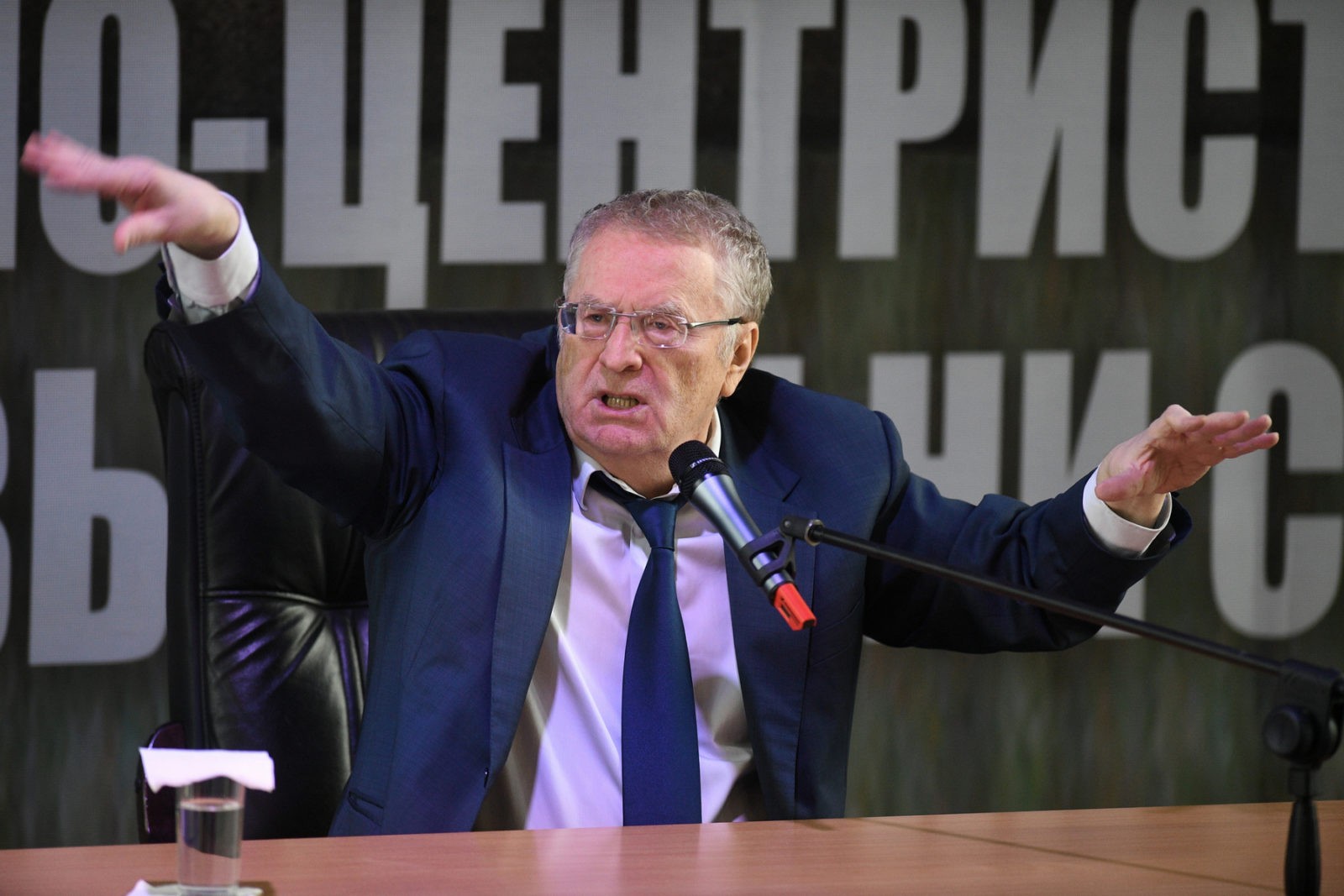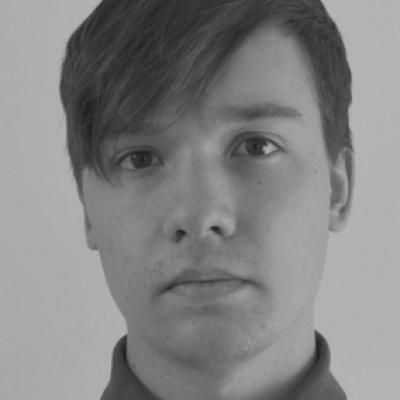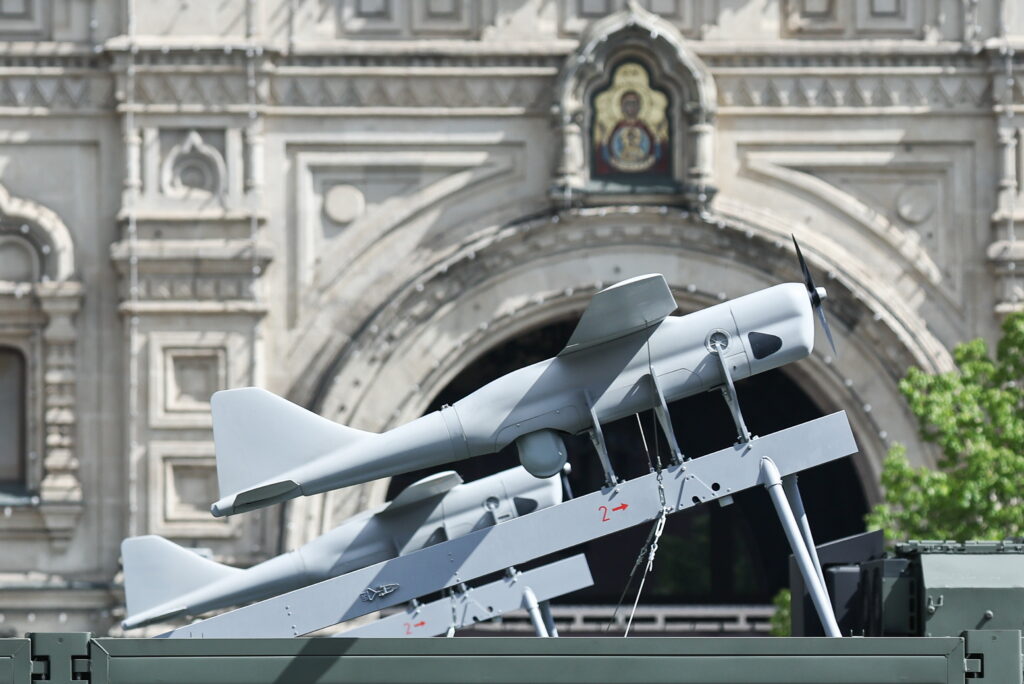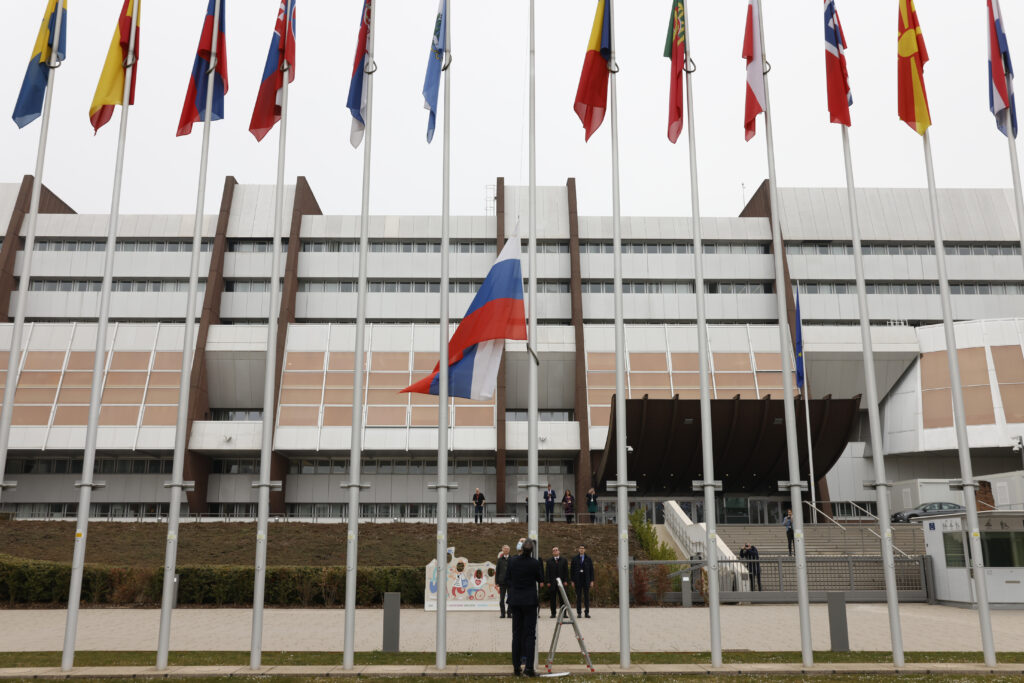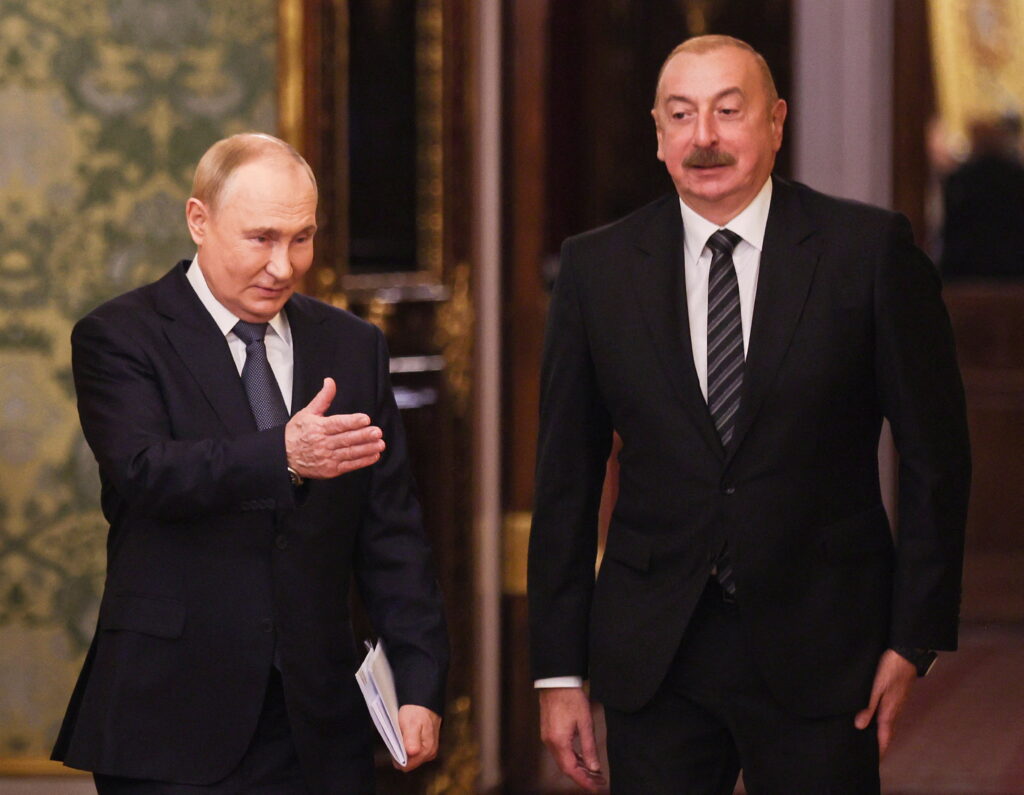On July 2, Vladimir Zhirinovsky opened the second “International Congress of Peace-Loving Forces” in the State Duma. The grandiose name did not suit the scale of the event as representatives of little-known radical parties and leaders of nationalist organizations gathered in a small conference room. The meeting might have gone unnoticed, if not for the recent wave of corruption scandals about Russia’s ties to nationalist populists in Italy and Austria. The increasing popularity of the League in Italy and the Austrian Freedom Party earned them cooperation agreements with United Russia (the Austrians signed the agreement in December 2016, the Italians in March 2017), while the leader of the French National Rally party, Marine Le Pen, personally met with Putin. The people who met at Zhirinovsky’s congress may be on the political fringes, but they are useful actors for the Kremlin’s foreign policy in their own way.
Who was at the Moscow congress?
This is the sixth time that Zhirinovsky has gathered foreign far-right politicians for a congress in Moscow. Back in 1992, he suggested creating a Moscow Center for Right-Wing Forces to the then-leader of the National Front, Jean-Marie Le Pen, who showed little enthusiasm for the project. The LDPR leader returned to the idea in 2002. Then Saddam Hussein generously sponsored European nationalists for the creation of an anti-war coalition. Three months before the American invasion of Iraq, the “International Congress of Patriotic Parties” was held in Moscow, but this did not help Hussein. Zhirinovsky’s party made gains through lobbying, but this was hardly a project for Russian foreign policy that could be helpful to the Kremlin. But in post-Crimean Russia, the meetings have acquired a new meaning. Zhirinovsky saw them as an opportunity to become a “mediator” and acquire something rather valuable – a network of foreign politicians who are willing to participate in Kremlin projects.
After 2014, this format of cooperation with foreign politicians gained popularity. In 2015, the “International Conservative Forum” was held in St. Petersburg, organized by functionaries of the far-right Rodina party. With the financial support of businessman Konstantin Malofeev, large forums on topics such as “Large Families and the Future of Humanity” have been held, as well as smaller ‘august gatherings’ by personal invitation. As chairman of the State Duma, Sergei Naryshkin held four international parliamentary forums attended by European nationalists.
Zhirinovsky opened this year’s congress “for peace” with a proposal to introduce proportional electoral systems and remove electoral thresholds in all countries, measures which would make it much easier for radical parties to enter parliament. The head of the LDPR also demanded “immunity” for legislators wishing to visit any foreign country (since 2014, Zhirinovsky himself has been under EU sanctions and cannot travel to Europe).
But most of the congress’s participants came to Moscow for other purposes – if not for financial support, then organizational, moral and symbolic. For Paul Golding’s “Britain First” movement, the congress was its largest international event since Trump’s scandalous retweet of anti-Muslim videos from the account of the organization’s deputy head, Jaida Franzen, in November 2017. The russophile Chris Roman, leader of the small Belgian organization, Euro-Rus, and former member of the Flemish Interest nationalist party, delivered a speech on Russian-European integration to bring about a “white Europe” from Gibraltar to Vladivostok. Representatives of the far-right from the German National Democratic Party, Karl Richter and Florian Stein, asked Russia to “be more active” and start a second offensive against Western liberalism. The head of the Polish fascist organization “Falanga”, Bartosz Bekier, made an appeal to rally against liberals and globalists. He himself had already visited Syria and the Donbas – pockets of resistance to Western imperialism, according to his worldview.
The meeting was also attended by the leader of the Japanese far-right party, Issui-Kai: Kimura Mitsuhiro. He has made regular visits to Russia since the beginning of the 2000s, and in August 2010 he himself brought the European far-right together in Tokyo, to Zhirinovsky’s dismay. Mitsuhiro is well-versed in European politics, having read Oswald Spengler, Alfred Rosenberg and Karl Schmitt, so he had a common language with the German Karl Richter, who wrote about him on Facebook. After the congress, they met with former State Duma Deputy Speaker Sergei Baburin in his office alongside the rest of the group. Baburin first made contact with European nationalists in the mid-2000s, and in 2017 he was elected the leader of the “International Slavic Council”, which holds international congresses for Pan-Slavists. The Brits did not go to the meeting and instead went to the Red Square to take pictures at the mausoleum and St. Basil’s Cathedral. On Telegram, Paul Golding published a long post admiring Moscow’s cleanliness and well-kept condition in contrast to the decadence of London.
Why does the Kremlin care about fringe politicians?
Russia recently regained its right to vote in the Parliamentary Assembly of the Council of Europe through ultimatums, a decision made by France and Germany at a meeting of the Committee of Ministers of the COE in Helsinki. Anton Shekhovtsov rightly notes that the Kremlin prefers to negotiate on matters like these with the more supportive elements of the European establishment. Right-wing populists are always Plan B after the “Putinverstehers”, a group of “Putin-understanders” in more mainstream European parties such as former Chancellor Gerhard Schroeder. The decision to give a hand to the Austrian Freedom Party and the National Front in France was made when the traditional party systems in the two countries were breaking down – as soon as it became clear that the nationalist-populists had a chance at electoral success, the Kremlin bet on them.
After the European Parliament elections in May, the nationalist-populist “Identity and Democracy” group won 10% of the seats in Brussels and Strasbourg. Its members, the National Rally, the Northern League, and the Austrian Freedom Party, regularly vote against resolutions critical of Russia, while Alternative for Germany and the Flemish Interest party usually abstain. For the State Duma Chairman Vyacheslav Volodin, it would be much more convenient to work with the consolidated pro-Russian group to resume inter-parliamentary dialogue, which was suspended in spring 2014. Volodin’s initiative to create an informal inter-parliamentary group was announced at a meeting with former President of Lithuania Rolandas Paksas before the elections last winter.
Russian connections with right-wing parties and organizations in Europe form a multi-level system. Each level has its own key agents with specific interests:
- Intellectual; the most obvious example is the disgraced philosopher Alexander Dugin, who has cultivated contacts with the main fascist think tanks of the West, such as the Spanish CEDADE and the French GRECE, since the late 1980s;
- Instrumental; this arena includes minor politicians like Zhirinovsky and Baburin, editorial staff at RT, Sputnik and the now closed Voice of Russia station, and election monitoring centers like CIS-EMO and Civil Control work;
- Tactical; in situations where the Kremlin already has an interest in the party and the leaders are ready to cooperate at the highest level, as seen with the Austrian Freedom Party and the League.
By 2019, it was the “instrumental” level that had shown its effectiveness for the Kremlin. Moscow began to cultivate an alternate informational reality after the mid-2000s color revolutions. The information war lost despite a successful military campaign in Georgia pushed Putin to “arm” available information resources. His Munich speech promise that Russia would “play a more and more active role in world affairs” was realized through an aggressive media campaign launched by Russia Today along with its renaming to RT in 2009. The information channel turned toward discrediting the West, and the same Western marginals — intellectual renegades and radicals — who were called up for comment and to international election monitoring commissions helped to legitimize its criticisms. Pro-Kremlin observers approved electoral procedures in unrecognized republics – Abkhazia, South Ossetia, Transnistria, eastern Ukraine and Crimea – and at the same time criticized elections in liberal democracies. The war with Ukraine raised the stakes – the editor of the German extremist magazine “Zuerst!” Manuel Oksenreiter began to work as both commentator for RT and observer in the Donetsk People’s Republic elections.
Western experts and observers from among the ranks of European nationalists – and sometimes left-wing radicals – solved two problems. They gave an alternative narrative beneficial to the Kremlin in various languages abroad. And after being translated into Russian, they ensured the visibility of international support for domestic audiences as well. To own such a network of foreigners is to have an important asset that you can use in your interests or “sell” to the presidential administration, which is precisely what Zhirinovsky is interested in.
Alexander Dugin understood the instrumental importance of “foreigners” in the early days of public policy in Russia. At a gala for the “Den” (‘The Day’) newspaper held in the Oktyabrsky cinema in 1992, he read out a dozen appreciative messages from European comrades, essentially from small political sects. When reproached (fairly) by the future co-chair of the banned National Bolshevik Party for manipulating public opinion about the real support he had among foreigners, Dugin only smiled: “Well you know, Eduard, for people sitting in this hall, what’s important is having support from abroad, not the number of people comprising this or that party.”
The decentralized system’s life of its own
It is no coincidence that right-wing radicals love Putin – after 2012, he began to speak their language. As the Russian president’s anti-American rhetoric grew in intensity, so did the appreciation for him from nationalists in France, Italy, Austria and Germany, from the 2007 Munich speech to the Valdai speech in 2014. Countries that came under this influence were those where the right-wing and conservative discourse always had a particular negative attitude to the United States. Putin’s recent statement that “liberalism is obsolete” resonates with Europeans who vote for nationalist-populists and no longer trust liberal institutions. Russian para-Kremlin structures only initiate cooperation, but do not manipulate the ultra-right in Europe, who look to Russia as a model and seek support – from symbolic to financial. Voters of the National Rally and the League sincerely support the idea of a self-sufficient and unified Europe “from Lisbon to Vladivostok” and see Moscow as an alternative to Washington and Brussels.
The Kremlin itself is more concerned with consolidating authoritarianism, where its main tasks are maintaining control in the post-Soviet space, restricting democratization and overcoming isolation. Western nationalists voluntarily became “tools” for Moscow; this is concerning for the European establishment, which does not know how to unravel such a complex network of informal ties. If Europe appointed their own “Muller” to investigate Russia’s ties with right-wing parties, a direct conspiracy is unlikely to be discovered. There is no coordination center that issues instructions and transfers money from an offshore fund in Cyprus, as many would like to see. Russian contacts with right-wing parties in Europe can be explained in terms that Mark Galeotti uses to describe Russian criminal networks in Europe: there are no strict hierarchies, but there are temporary and weak connections between groups and individuals. They have been built autonomously and by various actors – intellectuals, business, and old contacts – and then they are presented to the Kremlin as a finished product for specific tasks. Zhirinovsky is one of the mediators in this chaotic process.
But the decentralized system of contacts between the para-Kremlin structures and pro-Russian right-wing parties in the West has a life of its own. The scandalous Ibiza video has already sunk Sebastian Kurz’s government and the Austrian Freedom Party, which after the September parliamentary elections will be shunned from joining a coalition. And even though the episode was staged by a woman claiming to be a Russian oligarch’s niece, the very fact that the meeting took place indicates nationalists’ readiness for secret cooperation with Russian businesses. Salvini, meanwhile, will have to distance himself from the Lombardy-Russia cultural association and its president, Gianluca Savoini, who got on the ill-fated film at the Metropol hotel, where he discussed financing the League with schemes to sell Russian oil.
The pole Bartosz Bekier, who attended the latest Zhirinovsky congress in Moscow, is now a witness in the arson case of a Hungarian cultural center in Uzhgorod. His fellow Falanga party members threw Molotov cocktails into the building late in the night of February 4th in the hopes of provoking an ethnic conflict between Ukrainians and Hungarians. At the trial, they claimed to have received money amounting to 1,500 Euros from Manuel Oksenreiter, the RT pundit-slash-Donetsk electoral observer. According to them, part of the money came by mail beforehand. They got the remaining thousand from Oskenreiter, placed inside a book about the Syrian war, at the Tegel airport in Berlin three days after the arson.
